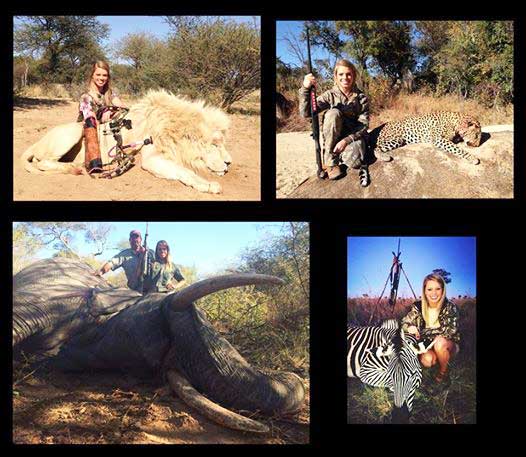Trophy Hunts & The Law
Because the hunts take place on private land, laws to protect wild animals are difficult or impossible to enforce. Only a handful of American states currently prohibit canned hunting.
Ted Turner is the largest private landowner in the U.S. and allows hunters to pay thousands of dollars to kill animals on his land.
Trophy hunting is also legal in South Africa and attempts to get the practice banned has failed.
Cecil the Lion was killed by an American Dentist in 2015. Even though this is legal there are restrictions or regulations in place about which animals can be killed, hunting locations and the weapons that can be used.
Trophy hunting is different from poaching. Poaching is the the illegal killing of wild animals to harvest something from them such as ivory. However often the bones and other parts of canned or trophy hunted animals make their way in to these poaching markets. Doesn’t that make it another form of poaching?
Image: Cecil the Lion. Source

There is also a school of thought that trophy hunting helps conservationism, in that the high costs of going on such a hunt is put back in to helping local wildlife, particularly endangered species. It also deters hunters from poaching wild animals.
The illegal poaching of, and trade in, wildlife products is a lucrative market which is estimated to be worth between $15 and $20 billion annually. The UK Government planned to ban lion imports from trophy hunting in 2017.
However there is something immoral about killing animals for fun, and the emotive feeling this creates can potentially lead to events such as the suicide of big game hunter Melania Capitan. Source.
Image: Melania Capitan on a hunt

Return To Table Of Contents








